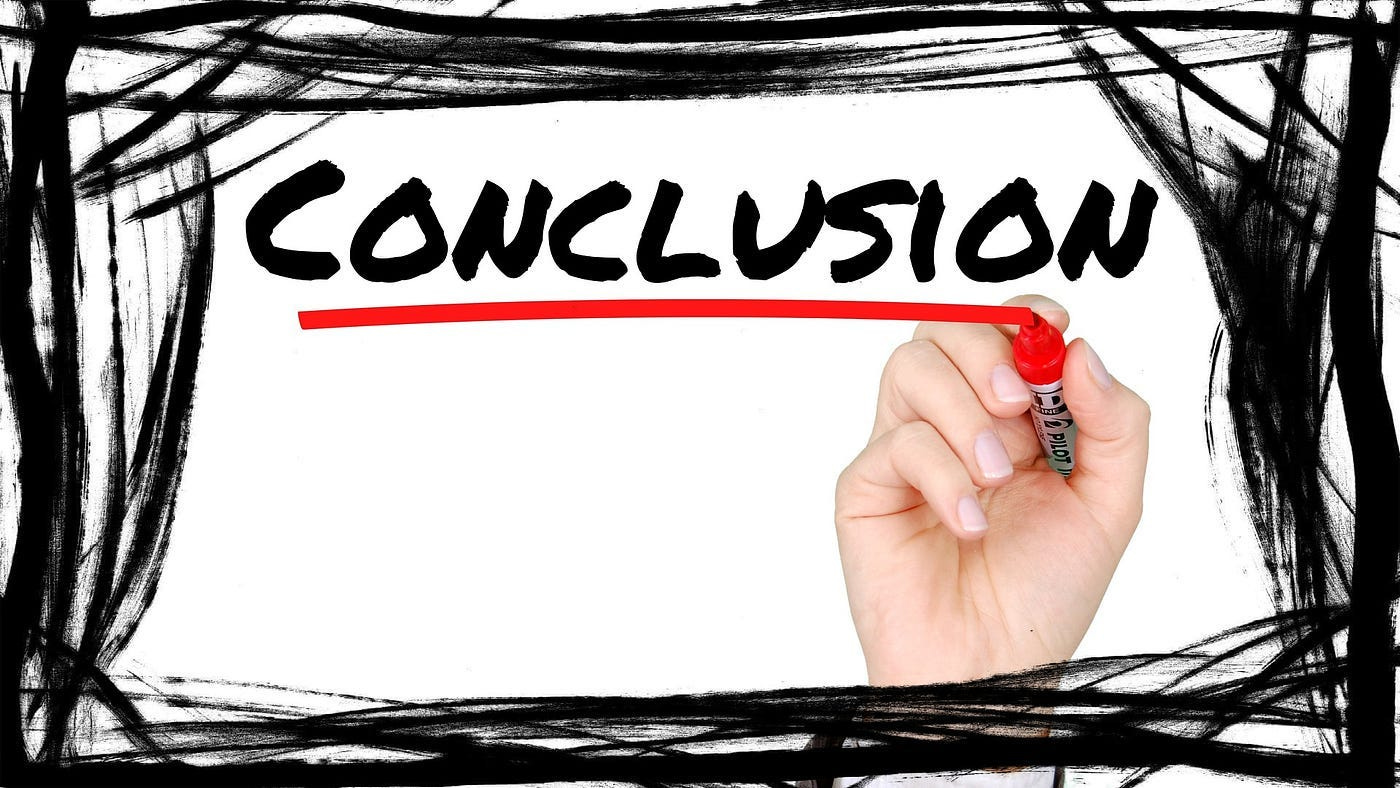A friend of mine asked me recently why they should consider decompartmentalizing their mind — specifically as it relates to the experience of their feelings, which they are otherwise able to keep at arms length, unexpressed.
I think that’s a great question — and I say that as someone who has spent the last fews years fairly aggressively seeking out and destroying, or more often having destroyed by others, the barriers containing his own mental compartments and now reaps the, uh, “rewards(?)”.
In any event, using the skills I honed while earning my honorary degree in Human and Cephalopod psychology from the Medical School of The Principality Of Sealand1, I will now put on my loafers and wade bravely into addressing my friend’s question.
As a preliminary matter, what is compartmentalization? One definition seems to focus on it’s anti cognitive dissonant effect:
Compartmentalization is a form of psychological defense mechanism in which thoughts and feelings that seem to conflict are kept separated or isolated from each other in the mind.
But avoiding cognitive dissonance isn’t the only use case:
I think my friend was talking more about the first definition than the second — although I can see how a given compartment could fall into both categories quite easily.
I have some thoughts.2
The Pros
1. Survival Mode
As someone who grew up in a wombo-combo of emotional/spiritual terrorism and physical isolation, I feel well equipped to describe the wondrous practical benefits compartmentalization can afford someone, especially a child.
When there are things that need to get done — like work, or school — or things that for whatever reason, in your bones, you know shouldn’t be done — like killing yourself or setting your house on fire — then dividing the various unsavory elements of your day to day into manageable portions can be a major help.
In my experience, this was best accomplished by isolating all of the various discomfitures of my life into their own little boxes away from the front stage lights. Loneliness — both pyscho-social and physical — all went into one box. Fear, which I was meticulously spoon fed from as early an age as possible, went into another box. Self-loathing had its box and social anxiety had its box, though both shared some contents vis-a-vis the cruelty and banal torments of my peers at school. There was the box that was “Me at school” and the box “me at home.”3
The totally unpredictable apoplectic fits of my mother had no box which could contain them — rather, they required a box that could be called upon to conceal and protect me on an emergency basis.4
It is no exaggeration to say that compartmentalization saved my life during my childhood. Since much of my life’s chaos was coming from the very people upon whom I would traditionally be expected to rely and trust, I had no one to turn to for help. So, I just figured that crap out with an eye toward survival — and that meant finding someplace to store all of life’s liquid shit so that I didn’t drown in it.
And lo, it worked, really well! I aced my classes! I survived until High School and then managed to escape! Compartmentalization for the win!
2. Problem Solving
Another benefit of being able to isolate things in your own mind is that you can bring a substantial amount of focus to bear on specific problems without interference from, you know, all your other problems. In that sense, compartmentalizing can sort of function like “sandbox mode” on your computer — or even like a standalone computer that’s “air-gapped” — upon which suspect files can be tested and analyzed without systemic danger.
This has served me well for many years. In fact, my “Social Anxiety” box is a great example of what I mean. That box included an abiding need to (1) understand what everyone is thinking about me at all times and (2) to be able to influence those thoughts.
Work in this compartment bore a great deal of fruit — both on the level of the individual — say in the ongoing efforts to placate my mother — but eventually in general. I dissected how people reacted to me and developed a means of interacting with the world which would maximally endear others to me. TL:DR, I developed a “sense of humor.”5
In general, and this is just an intuitive guess6, I would not be surprised if the incidence rate of ADHD in people who compartmentalize is extremely low. Moreover, I would guess that such people tend to be highly capable and extremely efficient, in general.7 Unless they go so far that they have OCD (which I do!).
And that, as far as I can think of now, brings us to the end of the “pros” — so lets jump into the “cons”.
The Cons
1. The “Paperclip” Problem
8This is the first danger, in my experience, of compartmentalizing as a behavioral habit — experience is infinitely sub-dividable and the instinct to compartmentalize everything leads to subdividing everything you experience — or at least everything of import. You become, in short, a serial compartmentalizer.9
On its face, that may not seem to be such a big deal — but in practice, it leads to all kinds of problems, most of which stem from the myopia compartmentalization reinforces.
Although it can be comforting to pretend that life’s trials and tribulations can be easily and efficiently categorized and filed away in separate cabinets — with no one e’er to touch t’other10 — that isn’t actually what’s ever going on. This fantasy helps make life, in all its chaos, feel like it’s under our control.
But, reality is not inherently compartmentalized — in fact, it’s anything but. Creating compartments can help to make reality feel more manageable, but it also hampers creativity. When you take all the free floating pieces of life and constrain them to their “right place” in your mind, you prevent those pieces from interacting — which means you prevent what I’ve previously referred to as the free-radicalization of meaning.
As opposed to mistaking the forest for the trees, compartmentalization makes it easy to mistake the trees for the forest— and can sometimes lead to extremely sub-optimal outcomes — outcomes equivalent to meticulously pruning a single pine tree in the middle of a forest fire — or assiduously tending to a small cut while ignoring a grievous wound.11
Compare that failure of functionality to a less12 compartmentalized mind - where the objects of mind are allowed to roam essentially free — where the mind takes on the qualities less of a dewey decimal system and more of a hearty stew —the soup of creation — a cauldron of metaphor — where the whole stinking pot can be viewed at once and all the ingredients are allowed to roam freely and interact.13
This is describing the realm of poetry — and loosening the compartments enables the bringing to bear of poetry into daily life under its more pragmatic pseudonym, or at least its close cousin, “problem solving.” It turns out, when you let yourself see the whole picture at once, solutions — or at the very least, next steps — tend to reveal themselves.
2. The Danger Of Catastrophic Failure
In 1919, in the North End of Boston, a storage tank brimful with molasses — 2.3 million gallons of the stuff — burst. A tsunami of molasses, 25 feet high at its peak and traveling at upwards of 35MPH, devastated the neighborhood, injuring 150 people and killing 21 in an event known as “The Great Molasses Flood”.
To say that the over compartmentalized mind is always operating at some risk of a “Great Molasses Flood” is not hyperbole. The fact is, we will all, at some point, be “hit by a bus”, so to speak. That is to say, it is inevitable that catastrophe will strike. And when it does — when it doesn’t only rain but pours — the difference between a flat road with drainage systems and a set of already near to overfilling compartments can be stark.
This is especially true when you utilize compartmentalization as a survival mechanism or in order to avoid cognitive dissonance. When things are relatively stable, the compartments keep each disparate experience separate, and therefore manageable and under control. But, when catastrophe strikes, if those compartments fail — if their contents burst out into the mind — all at once — into a mind not at all accustomed to nor prepared to process experiences that way — the results can be dramatic — and destructive.
I’ve seen this happen to two different friends of mine under very different circumstances, but in both situations they were forced by the sheer weight of reality to contend with their previously sequestered compartments. Suddenly, those sequestered contents could no longer be contained, and the result was an extremely difficult period for them both.
For my part, I think I intuited this risk, and my susceptibility to it, a long time ago and decided to try and take an ostensibly more measured approach — a kind of controlled demolition. But, as it often goes, I lost track of myself and ended up in the same position as my two friends.
3. Losing Track
A friend of mine told me a story about someone who effectively hid an old sandwich from themselves. They put it someplace unthinkingly and it began to rot, releasing a terrible stench that no one could identify the source of for some time.
When you compartmentalize things and then get on with your business, you’re putting experiences into psychic cupboards of sorts. Ostensibly, you have a system and things are where you intend them to be — and of course, that can be the case. Ostensibly, problems that clearly need consideration are put aside and “kept an eye on” or held in abeyance until the time is right to consider them. And again, that can work out.
But things don’t always go that way. History becomes legend. Legend becomes myth, and experiences that really ought to be hashed out instead get put into cold storage and are lost. And of course, they don’t disappear in their obscurity. Instead, they change. And, simultaneously, you change. And circumstances change.
Now, I’m actually a big believer in the importance of time delay — in letting things stew. Anyone whose ever had a well aged steak knows that time can enhance the flavor and the texture of the meat. And in the mind, time can work similar wonders. But, again in my experience, those wonders tend not to happen in a vacuum — nor in a compartment.
Free mental objects get to interact silently in the background with other free mental objects while you go about your life. The same can’t be said for constrained mental objects, which don’t get to interact with much of anything unless that interaction is intentional. That difference between freedom and constraint can be the difference between the meat ripening and the meat rotting.
To be sure, compartmentalization saved my life when it was necessary — but it also really facilitated the wrecking of my life when it wasn’t.
I guess theres several reasons this question has stuck with me — but the most salient is that in the last ten years, and the last year especially, I’ve had a lot of old compartments burst — not the ones that say things like “math” or “language” — but big ones that I set aside for years with labels like “why does it feel like this relationship isn’t working?” or “do I really believe [Y]” or “do I really want [X]?” where “X” is basically the contents of my adult life.
I’ve experienced both the intentional self-demolition and the unintentional demolition of mental compartments multiple times now. And what I can say, from that hard-earned experience, is that the former is much easier than the latter, if only because it doesn’t take you so much by surprise.
Also, speaking from the vantage of someone who has repeatedly forgotten or ignored compartments filled with rotten mind-stuff, only to have them burst and drown everything — I suppose I’m of the opinion that decompartmentalization is all but inevitable. The center cannot hold. All things break eventually, and its no different for structures of the mind.
If that must happen, how much better that it happen with intent? How much better that the fullness of experience be embraced on purpose? In a fundamentally uncertain life, where most everything is outside our control, what more can we realistically strive for beyond the manifestation of our own limited agency?
I’m not suggesting never compartmentalizing — that’s a good way to become highly ineffective at everything. But I think I’m suggesting being judicious. Sure, if you’re in a business meeting maybe that’s not the best time to burst into tears. Trying to figure out whether to go back and get your master’s degree while putting out a house fire is probably not a good idea.
But in general, the right time to feel a thing is when you feel it. The right time to experience a thing is when you experience it. The right time to think something is precisely the moment when the thought arises. And it’s only when you can feel, and think, and experience freely, without restraint, that you can express yourself.
There’s a common fallacy about art that I certainly believed at one time — that self-understanding must come before self-expression. I think maybe compartmentalization is often an embodiment of that fallacy — at least when it isn’t just an avoidance mechanism.
In reality, the relationship between expression and understanding is flipped — it’s only through expression — the tumult and the chaos, the wonder and the mystery of unmitigated expression — that we can come to understand anything about ourselves.
The story of the Principality Of Sealand is pretty interesting lunchtime reading — an entertaining tale of one man, Roy Bates, taking the turn of phrase “Where there’s a will there’s a way” altogether too far and effectively conquering a small abandoned British sea fortification and declaring it a sovereign micro nation*. As the Principality can be quite litigious, I should be clear that it does not, as far as I’m aware, yet have a state sponsored medical school — but I would strongly support its founding and hereby submit my request to the “prince regent” of the principality to become one of its inaugural students.
Writing this, it occurs to me that, though strong, many of the these boxes had translucent walls. That is to say, the light of experience passed through them and cast a fear colored glow, or an anxiety colored glow, or a self-loathing colored glow, etc etc, onto all sorts of things.
Whenever my mother’s wild animal screaming began to emanate from beneath the wooden slats of my bedroom floor — say, of a Saturday afternoon, without warning and apropos of nothing - somewhere deep inside my mind a big red button was hastily slammed and up came the reinforced titanium psychic walls with their single small plexiglass rectangular viewport, scuffed and degraded by psychic radiation, through which I could hazily watch as, with the efficiency of a well trained marine and the emotional valence of a zombie, my body would autonomically begin its long journey down the stairs. Passing my mother‘s wild eyes, hearing, through the heavy walls of my mental panic room, the muffled tones of her frothing ravings — or, much more rarely, passing the fairly inexplicable but undeniable presence and overwhelming fury of the apparition of my father, playing, for a strictly limited engagement in the kitchen, that morning only, the storied role of “ferocious taskmaster” - Whichever provisional demon was holding the proverbial† whip, I would carefully avoid their gaze as my hands mechanically set about righting whatever minor domestic chore had been neglected or, more often, done “incorrectly” the first time.
I am of the opinion that people who have experienced very little suffering are rarely funny — a sense of humor is, first and foremost, a survival mechanism.
My Raison d’être.
I just stole a gaze at myself in the mirror and winked proudly. Also, I looked up Compartmentalization and ADHD, upon an editing re:read I promise, and google suggested “People with ADHD may have difficulty compartmentalizing, or separating tasks, thoughts, and ideas, which can make them feel overwhelmed.” Right again — though I suppose that was sort of obvious, huh?
This is a reference to Nick Bostrom’s writing about the potential existential dangers in the creation of a super intelligent AI. To summarize, he postulates a super intelligent AI that is set to the task of making as many paperclip as possible, without restriction. The AI sets about fulfilling this task and does so perfectly. It just so happens that “perfect” includes turning every single thing in the world — including the atoms of the people living in it — into paperclips. The results are, uh, technically optimal but also, um, not great.
Actually, taken to an extreme, doesn’t this sound like OCD? Is that what OCD is, an over-zealous compartmentalizing impulse? Just get the window of experience down to the smallest common denominator, and suddenly you have “closing the door” in one box, “locking the door” in another box, and “touching the doorknob 5 times because that’s how many steps it takes to get from your bed to your closet” in yet another. That makes sense to me as compartmentalizing is about control, isn’t it? And what else is OCD — and anxiety — if not about control?
WTF was that about? I honestly don’t know, but I’m keeping it in.
Take, for instance, the example of trying to solve your domestic intimacy issues, say, by “making time for sex”, for instance, all while very carefully avoiding the piercingly loud alarms going off everywhere in your life announcing that your partner is embroiled in the world’s most obvious extramarital love affair.§
Because really, I’m not suggesting total decompartmentalization — it’s a useful tool — it includes compartments like “language” and “math” and “my work schedule” and “the days of the week I’m responsible for picking up my child.” A totally uncompartmentalized individual is going to be borderline useless in the world. As ever, the goal is striking a kind of active balance.
Seeing as I started this essay by saying I had recently had a bunch of compartments broken, the implication that this paragraph is referring to my mind is not lost on me, though it was not intentional. However, I will leave comparison in and address it directly by saying that, comparing only my own experience of my own mind before and after major decompartmentalization, which is, of course, the only comparison I’m able to make, my mind feels substantially less structured than before - and my expressive/creative capacity feels substantially more available. That comes with some side effects though - mostly that I have very little capacity anymore to hide my feelings, and tend to just feel things big time when they come up. I no longer view that as a negative, but I once did for sure.
*As an aside, it’s also worth at least taking a glance at the hidden universe of micro-nationality. The number of micro nations is surprisingly large and includes stand outs like “The Republic Of KugelMugel” (Pop. 650+), The “Conch Republic”, The “United Territories of the Sovereign Nation of the People’s Republic of Slowjamastan”(Pop.500–17000), and, of course, The Space Kingdom Of Asgardia (Pop. 1,117,615) which has established it’s entire “territory” in low earth orbit in the form of two small satellites.
†It’s worth noting here that my parents never once hit me. My mother pushed me once — but by that point I was the same size as her and I think she must have thought better of it and, as it didn’t hurt, I was mostly confused into silence. I suspect that this lack of physical violence was the result of their ostensibly high minded efforts not to inflict upon their children the physical pain inflicted upon them by their own parents’ periodic wallopings.
However, I say this was an ostensible effort, because I don’t think, based on the stories I’ve heard, that my grandparents on either side operated predominantly in the realm of corporal punishment — though they certainly picked up a wooden spoon or a belt now and again.
Rather, I think my parents themselves were, predominantly, subject to much the same psychological sorts of attacks that they unleashed upon me and my siblings.
Personally, I think I may have preferred the belt, some of the time anyway — if only because the arrival of physical pain unmistakably confirms that one is alive — whereas psychic torment impels one to collapse inwardly and, in a spiritual sense — which, from one perspective is the truest sense — die.
§ This is a work of fiction. Names, characters, places and incidents either are products of the author’s imagination or are used fictitiously. Any resemblance to actual events which may have happened to the author in the recent past are entirely coincidental.










